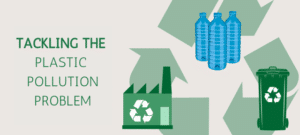What more can the South West be doing to create a circular economy this Plastic Free July?
With Plastic Free July well underway, DCW Polymers Managing Director Simon Almond reveals why he thinks a circular economy is so important in the fight against plastic waste, and the steps DCW Polymers is taking as one of the South West’s leading plastics and recycling processing plant…
Plastic Free July is a fantastic awareness campaign which gets everyone thinking about how they can eliminate single-use plastic from their day-to-day lives, or at least cut down on the amount they send to landfill.
This global movement is an annual event and every year we are faced with even more devastating plastic waste facts. Currently, nearly 300 million tonnes of plastic waste is produced each year with 1 million marine animals dying due to plastic pollution (source: Seed Scientific). Plastic Free July aims to make an impact by encouraging households, schools and workplaces to think about what sustainable swaps can be made to eliminate single use plastic, and it works! According to the leaders of the campaign, participants reduce their household waste and recycling by 21kg per person and contribute to a total saving of 940 million kg of plastic waste each year (source: Plastic Free July). It’s great to see that the campaign can make such an impact, and really heartens me, as personally I am invested in fighting back against plastic pollution.
I’ve always been passionate about creating a circular economy and have never wanted anything to go to waste, even from a young age. I used to rescue unwanted bikes from skips so that I could repair them and sell them on to my school friends! I adopted a similar approach when I founded DCW Polymers. We strive to help our customers become Zero to Landfill companies but sometimes, this is challenging due to the specialist waste some businesses may produce. When situations like this occur, we work with customers to find an alternative solution to ensure we keep those materials away from landfill and give them a new lease of life.
Plastic has often been considered as hard to recycle. Many plastic products are made out of several different materials, including chemicals, making it difficult for local authorities, for example, to recycle as the materials need to be separated. Globally 91% of plastic is not recycled and 75% of all plastic produced becomes waste (source: Seed Scientific). We want to change this at DCW Polymers and that is why we have researched and invested in processes which turn plastic waste into new products.
Waste one-minute, stylish outdoor furniture the next
We’ve invested in a new machine at our specialist plastics recycling centre, DCW Polymers in Exeter, which melts bulky plastic waste down and moulds it into large posts and planks. After weeks of trialling this new process and ironing out the kinks, we launched our outdoor furniture range in May 2021. Plastic waste from South West businesses processed by DCW Polymers is now being made into a range of picnic benches, tables, chairs, fence posts and decking for individuals to buy for their household or business. It’s an excellent sustainable alternative to timber as the plastic products are maintenance free, will not rot, splinter or corrode and will not require painting or creosoting. Bulky plastic waste such as pallets, kayaks, buckets, fuel tanks and wheelie bins make ideal sources of plastic for this type of process. You can find out more here.
Striving for a circular economy
In addition to being an authorised distributor of Storm Board product, we also provide the material that goes into the making of this weatherproof plywood alternative. What material is that? You guessed it. Waste plastic! This is the definition of a circular economy. Taking waste plastic and recycling it back into the manufacturing process reduces the need for virgin plastic products to be made and in turn, reduces energy consumption and CO2 emissions.
We also run our own charity fundraising campaign every year which keeps plastics away from landfill. We’re all very familiar with the plastic confectionary tubs that feature as part of our Christmas celebrations every year, but did you know many of these end up in landfill? We launched Recycle & Raise in an attempt to put hundreds of these tubs to good use. Every year, we collect these empty plastic tubs from across the South West and shred them into plastic granules. This material then gets sold back into the manufacturing industry and we donate the funds to charity! This year, the campaign raised an incredible £4,096.60 for Dartmoor Zoo and Mind and we look forward to raising even more funds this winter. It’s just another example of how DCW Polymers is striving for a circular economy, and with this campaign, also helping those in need.
Conversation around plastic waste is certainly loud this month and I hope this encourages you to think about what more you or your business could be doing to recycle plastic waste and to contribute to a more circular economy. Myself and my team are always looking at ways in which we can improve our own processes and I hope you will join us and do the same.
If you are interested in finding out more about how you can recycle your bulky plastic waste with DCW Polymers, give my team a call on 01392 535353 or email [email protected].
All the best,
Simon Almond







